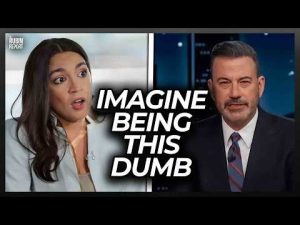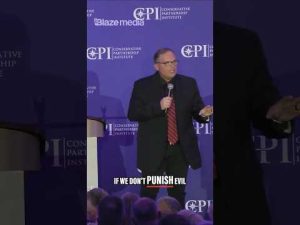In a stunning turn of events, Jimmy Kimmel, the popular late-night television host, finds himself embroiled in controversy and temporarily off the air. Reports emerged that a significant reason for this unexpected hiatus was his refusal to apologize for inflammatory comments made against MAGA and his plans to persist in targeting the movement. This incident sheds light on the escalating tensions between media personalities and conservative audiences, and raises important questions about accountability and responsibility in public discourse.
On Monday night, Kimmel sparked outrage with remarks that were deemed as a misleading attempt to link a tragic shooting incident with MAGA supporters. The narrative he pushed suggested a politically motivated attack by associating a shooter with conservative ideologies, despite evidence pointing in a different direction. Critics argue that Kimmel ignored key facts, such as the shooter’s unaffiliated voter registration and leftist leanings, in favor of sensationalism. This highlights a broader trend where public figures sometimes prioritize narrative over truth for impact, which can have serious repercussions.
Instead of retracting his statements or issuing a public apology, Kimmel allegedly planned to double down on his accusations when returning to his show. He intended to frame any backlash as an intentional misinterpretation by MAGA supporters, effectively shifting blame rather than addressing his own errors. This approach underlines a troubling pattern within media circles, where admitting fault and accountability seem secondary to maintaining partisan narratives. By failing to acknowledge mistakes, public figures like Kimmel risk widening the political divide and further eroding trust.
The fallout from Kimmel’s comments reached Disney and ABC’s corporate offices, with phone lines reportedly inundated by viewers expressing their dissatisfaction. This reaction underscores a growing sentiment among audiences who are weary of continuously seeing conservatism painted with a broad brush of negativity on mainstream platforms. The pushback from affiliated networks, some of which signaled their unwillingness to air Kimmel’s show, reflects an increasing demand for balanced and factual reporting, regardless of political leanings.
This incident serves as a reminder of the indispensable role media figures play in shaping public opinion and the impact their words can have on societal harmony. As networks and broadcasters grapple with these challenges, there’s a clear call for media personalities to exercise greater responsibility in their commentary. By prioritizing truth and transparency, rather than pursuing divisive rhetoric, media platforms can contribute more constructively to public discourse and help mend the deepening fractures in society. The temporary suspension of Kimmel’s show should act as a cautionary tale, urging all voices in the media to strive for integrity and fairness in their narratives.







